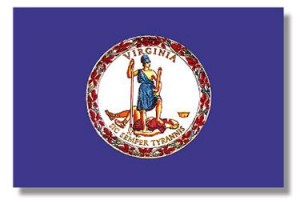
FOR IMMEDIATE RELEASE — JUNE 25, 2021
I am happy to announce the partial settlement of my longest-ever running qui tam case — United States ex rel. Stephen Bishop v. Level 3 Communications, Inc., et al. for $12.7 million. The civil settlement agreement was actually effective earlier this month, but I wanted to wait until the criminal re-trial — which began on June 8 and ended on June 24 — was complete to do this blog post.
The United States Attorney’s Office for the Eastern District of Virginia also waited to do its official press release about the civil settlement until the criminal trial was over.
And, what do you know: last night (i.e., after less than one full day of deliberation) the guilty verdict came against the two remaining criminal defendants, one of whom, William S. “Bill” Wilson, is also a defendant in my First Amended Complaint filed in June of 2014. The other criminal defendant, Kekoa Lumho, was an employee of the DoD-OIG and was thus not a potential party to my qui tam.
The settlement is a partial one because the civil qui tam against Wilson was on hold pending the outcome of this criminal trial. Now that that part is we can move forward with the qui tam claims against Wilson.
Background to the Civil Qui Tam Settlement
The defendant in this civil settlement, Level 3 Communications, Inc., is one of only six tier-one internet services providers in the world — in other words, they are one of only six companies that construct, own, maintain and extend the physical infrastructure of the internet. Level 3 earns its living by charging tolls for the use of its infrastructure.
This naturally makes the United States Government quite involved in Level 3’s work. Not only is Uncle Sam a major customer of Level 3, but the maintenance, construction — and above all extension — of broad-band internet is at the top of Uncle Sam’s list of priorities.
During his employment with Level 3 my client Stephen Bishop (who served as a Senior Program Manager for the Level 3 federal sector) became aware that his supervisors — Timothy Donelson and Ron Capallia — had received bribes and kickbacks and had conspired with DoD-OIG employee Kekoa Lumho as well as the owner of a Level 3 subcontractor to submit false claims to the United States.
When Mr. Bishop’s efforts to stop these frauds internally within Level 3 failed, he resigned his employment and hired counsel for this qui tam lawsuit. He came to me in the fall of 2013 and we filed the case in November of that year.
Yes, that means this case took almost eight full years to resolve…and yes, there is a backstory there…but first my theory of the case.
Interplay Between Violations of the Anti-Kickback Act (41 U.S.C. § 8701) and the federal False Claims Act
Mr. Bishop’s case turned primarily on the payment and receipt of bribes and kickbacks by Level 3 executives — and the mischief that always seems to flow from (or maybe it follows) people who pay and receive bribes and kickbacks.
If you think I am over-stating the case about mischief following bribes or kickbacks, just look at this article in from the on-line publication Wireless Estimator back in 2017. People who start out with bribes and kickbacks always seem to “graduate” to more serious criminality.
The federal Anti-Kickback Act (41 U.S.C. § 8702) makes it illegal for any contractor or subcontractor to pay or receive a kickback or bribe in connection with the award or performance of any federal contract. Paying or receiving a kickback or bribe renders subsequent invoices “false” as defined in the FCA because the United States does not pay claims tainted by kickbacks or bribes. Such claims are, therefore, ineligible for payment — or at least that was my theory of this case.
Stay tuned dear readers, more to come…